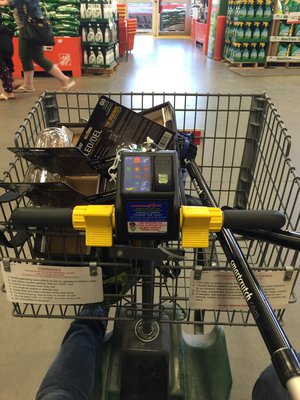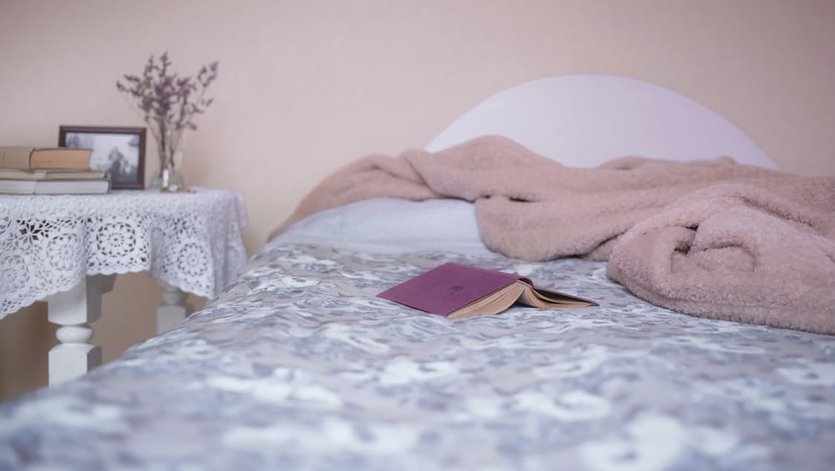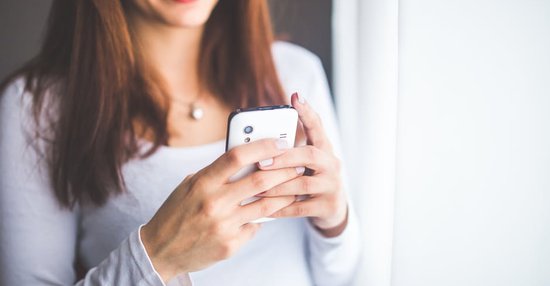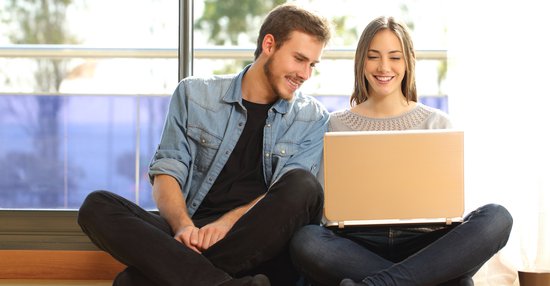A few months after my chemo ended for breast cancer, I had to get a hip replacement because of my inflammatory arthritis.
At 47-years-old, I already have experience recovering from bilateral mastectomies, reconstruction, node sampling, axillary dissection, chemo, a hysterectomy after significant BRCA mutation results and now a hip replacement.
Once I got home from the reconstruction, I was under strict orders not to bend past 90 degrees at the hip or it may dislocate.
Imagine being alone at home and staring at the toilet paper roll that’s fallen to the floor just as the laxatives you’ve been given started to work.
Fortunately, I had my handy picker-upper tool. I also had my platform walker to get around the house, which saved me from my right sided weakness and managed to get me around the kitchen for the day, until I collapsed into the recliner I had reclaimed from the basement from my chemo days.
Although in illness we are faced with many challenges, most of those challenges are things we can be prepared for.
And with that realization, I came up with my “be prepared patient list:”
1. Wear your phone at all times
The occupational therapist told me to wear my phone at all times – brilliant idea. A nice little pink bag crosses my chest at all times, which has been great for a few close calls since my brain refuses to believe I can’t walk properly.
2. Invest in the gadgets
Get all the gizmos to help you. For example, a leg lifter gets my bad leg into bed and the two-foot grabber is great, especially when needing to grab things off the shelf while shopping in the Walmart scooter.
Other gadgets that have been helpful include:
- My recliner, which made me feel like I didn't spend all day in bed
- My long-handled shoe horn, which is nifty for the next three months of restrictions.
- Lots of easy dresses to avoid struggles in dressing.
- The shower stool is amazing, since showers make you feel great – longer the better so sit down and relax, even when you are weak.
- There are also camisoles in the mastectomy stores with little pockets for the drains – wish I had known.
It is hard to get this stuff after surgery so be prepared ahead and many places deliver free.
3. Make sure your caregiver knows the lay of the land
Plan for your caregiver to know where your stuff lives before surgery. When you are in the hospital or flat on your back and you ask him to get your favourite blanket or wrap by instruction only – plan where it is. Your caregiver may do the laundry, but putting it back can be a nightmare too. We are an interesting team – me with my two-foot grabber pairing socks and my husband putting it all away.
How do your pillows go? Five to seven pillows dutifully arranged after my double mastectomy reconstruction propped me up at night. Plan the cupboards, wardrobe – you can’t do it all, help those who can.
4. Assistive devices.
Cane, Smartcrutches (that’s what I have - revolutionized forearm crutches help my mobility and gait), walker, platform walker. Stop feeling embarrassed and start mobilizing. You will be surprised how helpful people are - yes, I even shopped the Home Depot warehouse in the electric buggy, which was totally fun. Find a way to get around - don’t just stay at home.
5. Rest
Allow yourself to recharge. Immunity improves with sleep and I need a load more red blood cells. Pain improves and energy is conserved for the next task.
6. Watch tennis – or whatever you want
Well that’s my fave. Wimbledon is near my old hangout and I have never had a chance to follow it at work. I remember the summer of chemo, I ordered the t-shirt in my sadness. Now, I can’t play tennis so I am a fan. I expect to be allowed to play doubles which between hip and neuropathy seem a mountain away. But I have done mountains…..
7. Physio and fitness
Before this surgery, I was left with one sport: aquafit. Dig it, folks! Can’t walk, can’t work out much , no yoga… get buoyant. Here’s hoping to get back to my aquafit gang and, of course, I totally know how to aquafit in the lake now….what a new trend! Waiting for wound approval later this week.
8. “If there’s anything I can do for you, let me know.”
You’ve heard it before from the most sincere hearts, but you don’t have the energy to think or it’s easier to not do it. This website is your help: http://lotsahelpinghands.com.
It was recommended to me as a doctor for patients going through illness (cancer, sudden loss, illness or accidents). You can create a community of help that is specific to the individual’s wants. They may list to pick up their child from school, drop off a meal, find a hairdresser to come to the house, take the dog for a walk and the community is approved and known to the patient – all the volunteer has to do is check off a task to be helpful.
9. Stay ahead of pain and & other symptoms (constipation, nausea)
I use an app called Pillboxie, but there are many more. Just because you now feel well, doesn’t mean it won’t come back. LEARN FROM MISTAKES – THAT’S WISDOM. Be kind to yourself.
10. Say thank you
Unsung heroes need to hear it when they now add picking up anything dropped and irretrievable due to my 90 degree rule, I can’t carry a mug with crutches, there’s cooking, cleaning and mending things that go wrong,
11. The Whiteboard
There’s one in your hospital room – insist that the doctors, ortho surgeon, fellows/residents, nurses, physio, occupational therapist, respiratory therapist, pain team members and crew put their names  on the board. That interesting name lasts a few minutes in short term memory till the drugs you are on help it dissolve away, never to return. Add the date too, which can also blur days into each other. On that topic, have a whiteboard at home with the important specialists, CCAC contacts and upcoming appointments. Know that you will forget and you will not get angry at your chemo brain.
on the board. That interesting name lasts a few minutes in short term memory till the drugs you are on help it dissolve away, never to return. Add the date too, which can also blur days into each other. On that topic, have a whiteboard at home with the important specialists, CCAC contacts and upcoming appointments. Know that you will forget and you will not get angry at your chemo brain.
12. Bring back the Soap-on-a-Rope!
Is that dating me? Losing the soap in the hospital shower, most people have little desire to reuse it after retrieval. I can't break my 90 degree rule which would include picking up soap. Get a giant soap from Home Sense (the kind that is way too big for any other use), have your nice friend or spouse drill or skewer a hole in the top 1/3 and put a shoe lace through. Voila! You smell fresh and clean sitting on your safe relaxing shower stool.
Here’s to the “cans” and not the “can’ts” - because we are warriors and get through these things we must. Resilience is post traumatic growth. Inspiration is what we radiate. Allow people to help you because they benefit from giving too.
I have decided to count well days now. We overlook them – it’s all about perspective.




